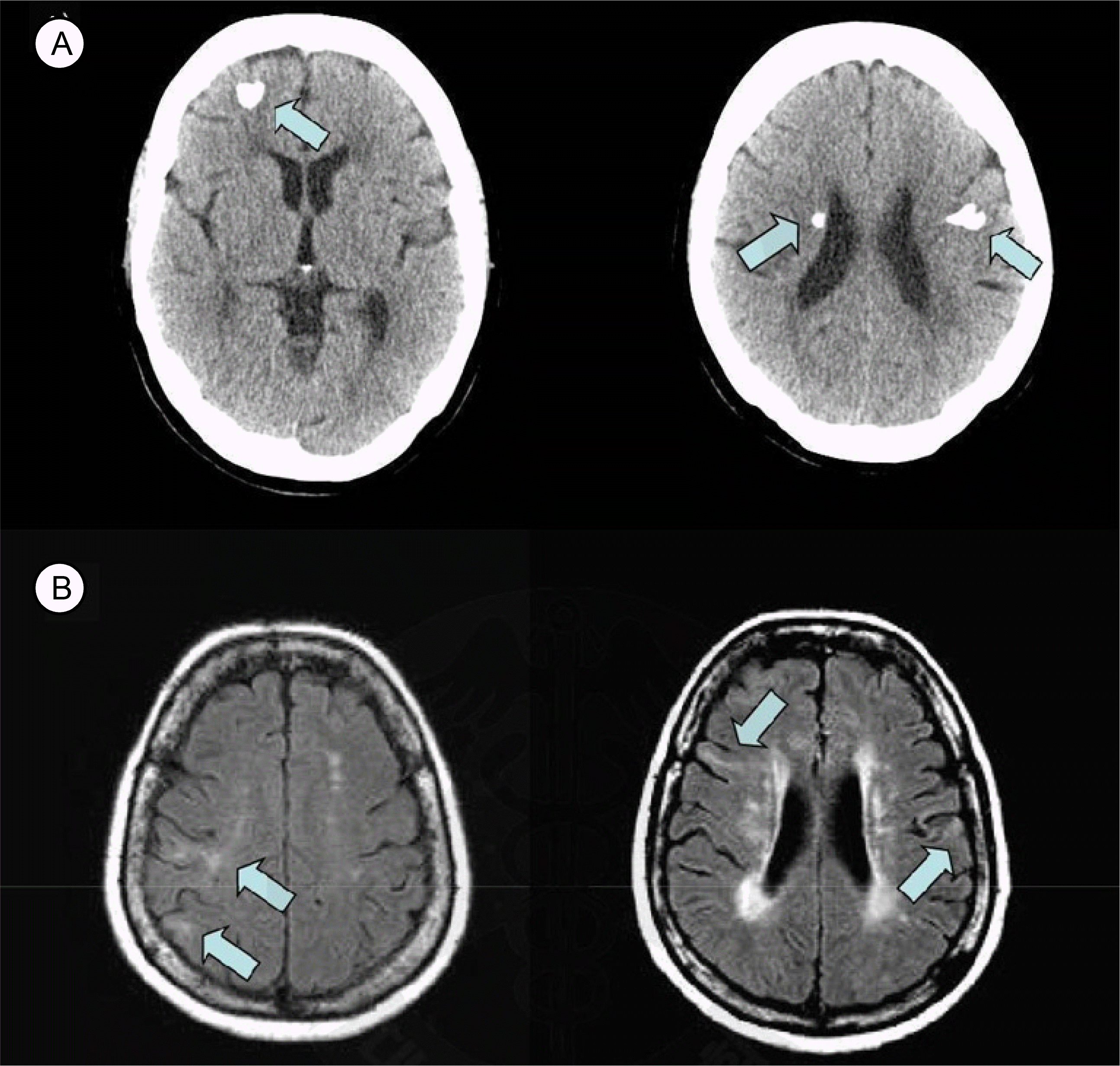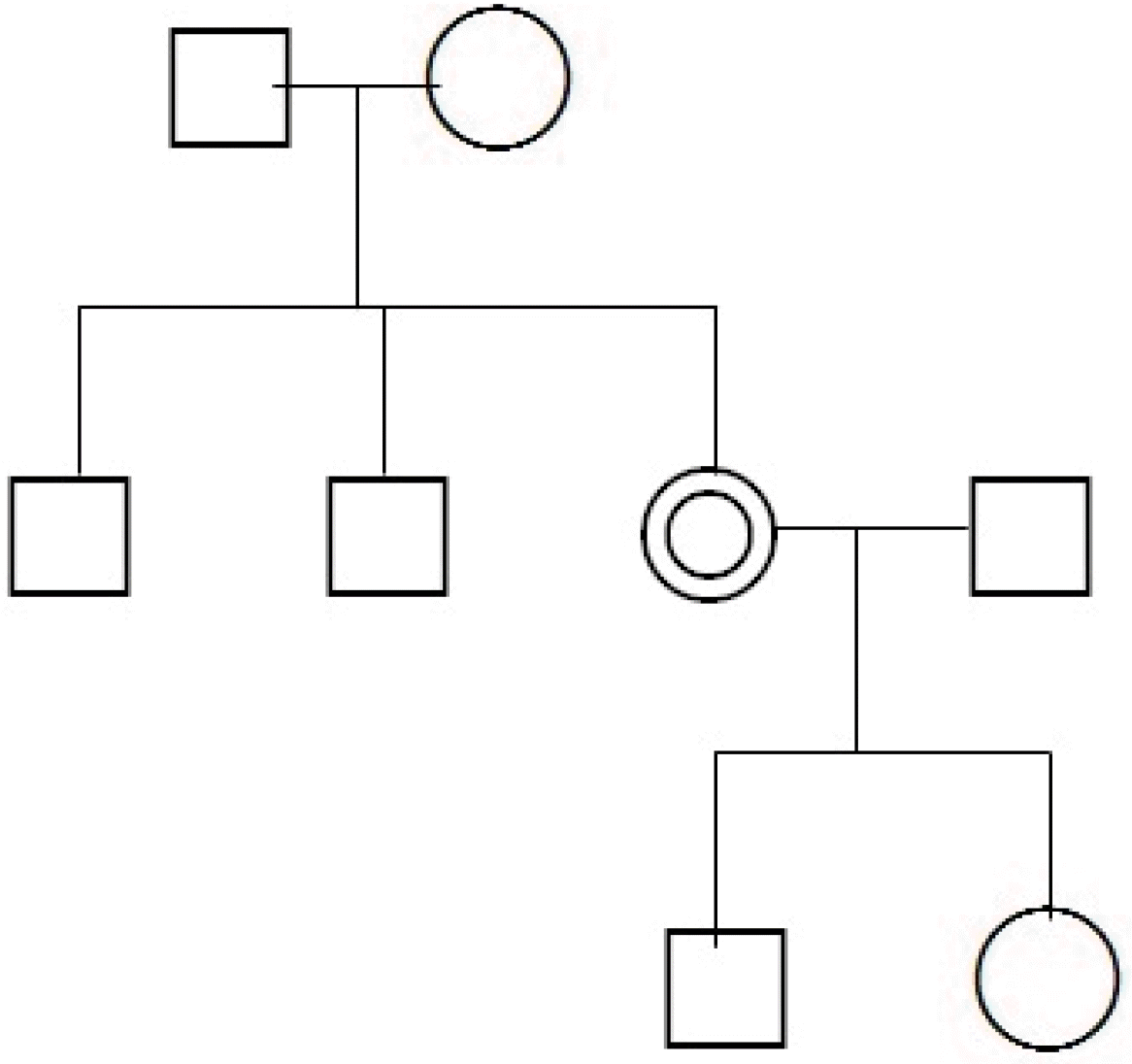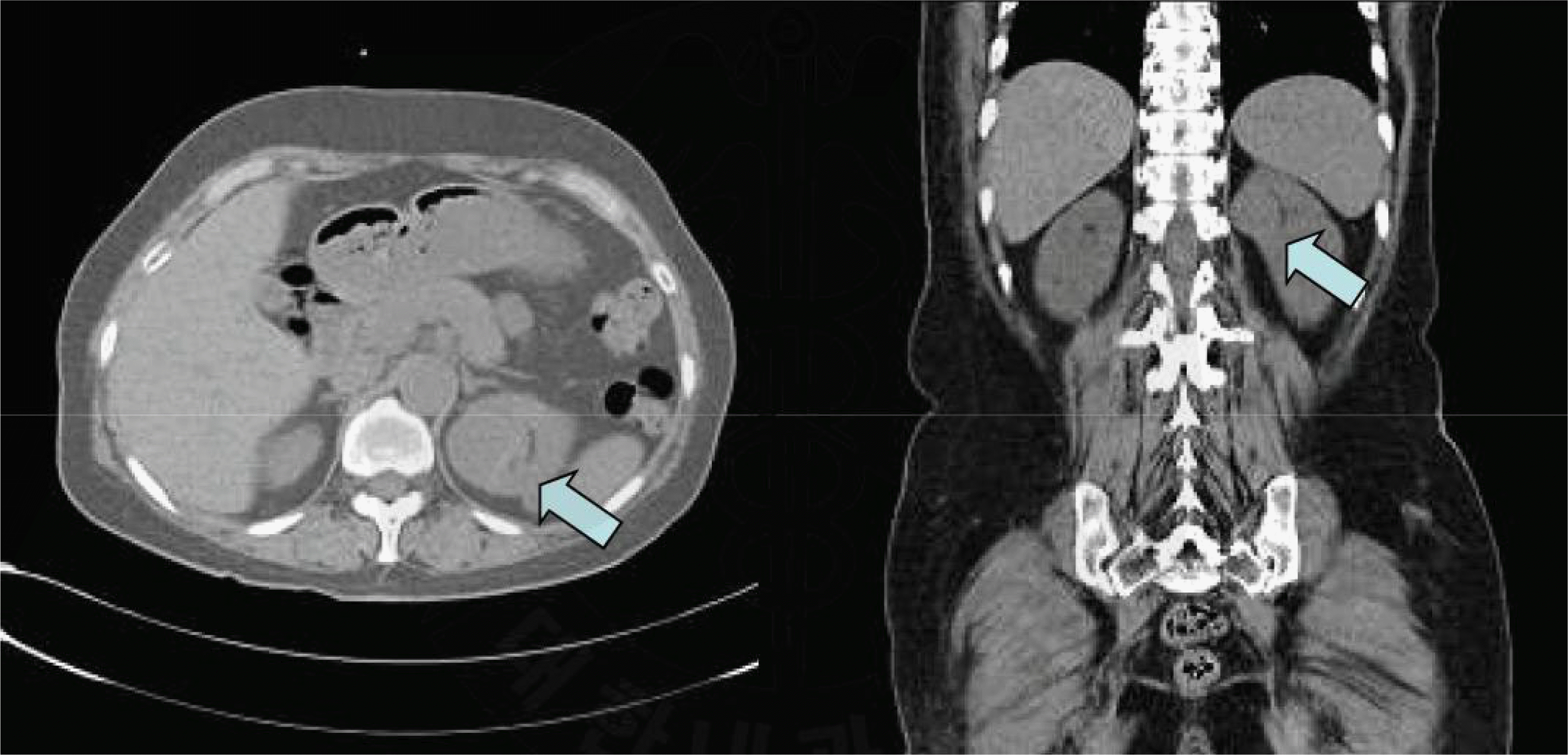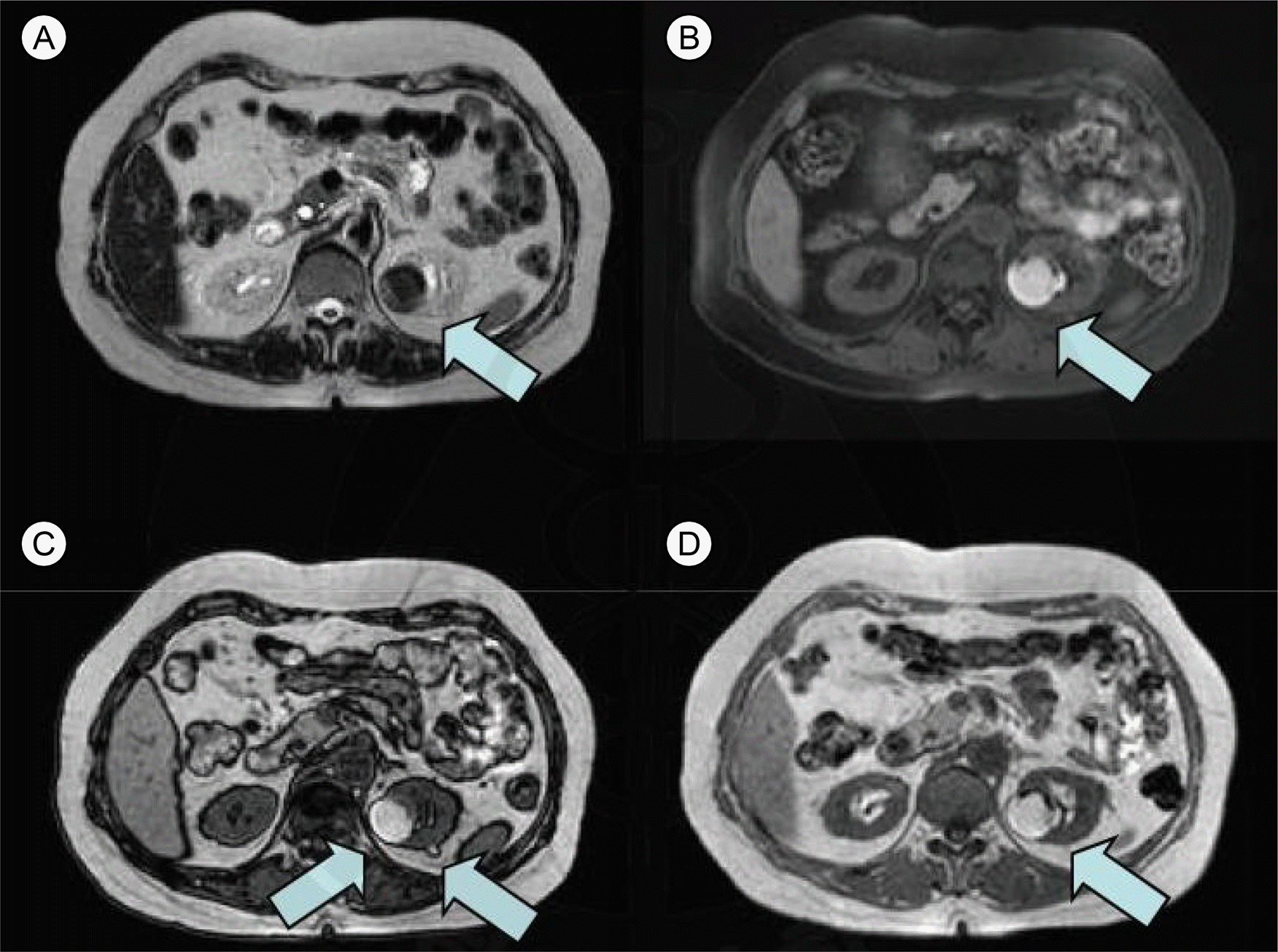Abstract
Symptoms of tuberous scelrosis (TS) are mainly related with brain and kidneys. Seizure, mental retardation, other behavioral problems are dominant. A spectrum of renal tumors from benign angiomyolipoma (AML) to polycystic kidney disease, and rarely malignant renal cell carcinoma have been observed. Cystic AML is a rare phenotype of AML. No case of TS with renal cystic AML has been reported in Korea yet. And chronic kidney disease (CKD) in TS has been seldom reported. We experienced a TS case accompanied by renal cystic AML and CKD diagnosed in a 48-year-old female patient who was hospitalized for left side weakness and seizure under the diagnosis of acute cerebral infarction.
Go to : 
REFERENCES
1.Narayanan V. Tuberous sclerosis complex: genetics to pathogenesis. Pediatr Neurol. 2003. 29:404–9.

2.Shepherd CW., Gomez MR., Lie JT., Crowson CS. Causes of death in patients with tuberous sclerosis. Mayo Clin Proc. 1991. 66:792–6.

3.Crino PB., Nathanson KL., Henske EP. The tuberous sclerosis complex. N Engl J Med. 2006. 355:1345–56.

4.Davis CJ., Barton JH., Sesterhenn IA. Cystic angiomyolipoma of the kidney: a clinicopathologic description of 11 cases. Mod Pathol. 2006. 19:669–74.

5.Yeo DM., Chung DJ., Kim TJ., Lee IK., Hahn ST., Lee JM. CT and MRI Findings of Angiomyolipoma with Epithelial Cysts of the Kidney: A Case Report. J Korean Soc Radiol. 2010. 63:173–6.

6.Neumann HP., Brüggen V., Berger DP., Herbst E., Blum U., Morgenroth A, et al. Tuberous sclerosis complex with end-stage renal failure. Nephrol Dial Transplant. 1995. 10:349–53.
7.Moon SH., Choi HJ., Yun UD., Yang DK., Woo YS., Chang KY, et al. Two Cases of Tuberous Sclerosis Patients with Renal Anomaly. Korean J Nephrol. 2001. 20:137–42.
8.Nelson CP., Sanda MG. Contemporary diagnosis and management of renal angiomyolipoma. J Urol. 2002. 168:1315–25.

9.Wiederholt WC., Gomez MR., Kurland LT. Incidence and Prevalence of tuberous sclerosis in Rochester, Minesota 1950-1982. Neurology. 1985. 35:600–3.
10.Hunt A. Lindenhaum RH. Tuberous sclerosis: A new estimate of prevalence within the Oxford region. J Med Genet. 1984. 21:272–7.
11.Peter B. Crino, Katherine L. Nathanson, Elizabeth Petri Henske. The Tuberous Sclerosis Complex. N Engl J Med. 2006. 355:1345–56.
12.Larrode Pellicer P., Millán LF., Morales Asín F., Ayuso Blanco T., Bello Dronda S. Cerebral infarction and convulsive crises in a forme fruste of tuberous sclerosis. Rev Clin Esp. 1986. 179:477–8.
Go to : 
 | Fig. 2.(A) Brain CT shows multiple calcifications suggesting calcified tubers in right frontal periventricular area and left frontal subcortical white matter (arrows), (B) FLAIR image of MRI shows multifocal linear and wedge shaped high signal lesions suggesting cortical and subcortical tubers in both frontal cortex and subcortical white matter (arrows). |




 PDF
PDF ePub
ePub Citation
Citation Print
Print





 XML Download
XML Download